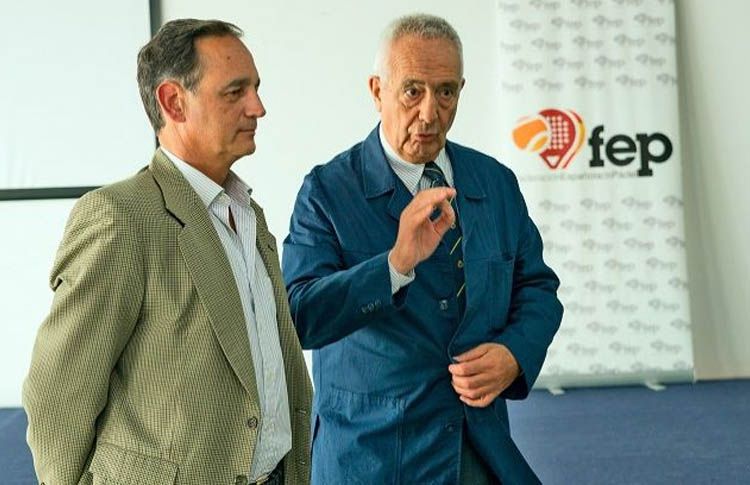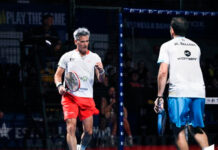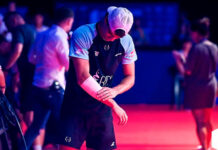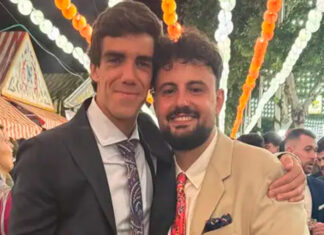"They say that renewal is a virtue in organizations. I have never believed it if it is not accompanied by an improvement in the actions undertaken by the new managers. " Do not miss these great reflections of Javier Casadesús, who talks about the 'relay' at the head of the FEP.
Padel World Press .- The Spanish Federation of Paddle chose last July 23 to a new president, Mr. Alfredo Garbisu, who succeeded Mr. Miguel Medina, who presided over the past 17 years. Of him and his team, both the Board of Directors and the professionals of the house, depend that the renewal is in this case a virtue or not.
The FEP was born and grew in its early years at a time when there were no Autonomic Federations or professional Circuits (at least in Spain). A time when the FIP, the International Paddle Federation, was only an appendix of the Argentine and Spanish Federations.
Logically, in those first years the FEP exerted an exclusive role in the organization of the national padel and leadership in the FIP. From the issuance of all the licenses, to the organization of all the Professional Championships (to call in some way the best tournaments of the time), as of Minors, going through the organization of teaching.
With these precedents it is logical to think that the FEP acquired tics, that although they can not be described as authoritarian, necessarily they were born of non-collaboration with the rest of non-existent institutions. If there are no interlocutors, there is no one to negotiate with.
Spain is a decentralized state and sport does not escape that reality. That is why, with time, the incipient territorial federations were growing and assuming competences that previously fell to the FEP. The FEP even stopped issuing licenses in those territories (until today, where there is only one Community that has not yet done so).
Spain also belongs to a capitalist zone, where the private initiative coexists with public institutions or that perform a public function. With the growth of padel, some companies saw a business opportunity and launched themselves into the organization of Non-Federated Circuits. Some went further and managed to take over the monopoly of Professional Pádel.
The FIP went from a few countries to close to 20. In addition, these countries wanted to assume a more significant role in the development of the world padel.
And the FEP? How should he, should and should he react to this environment? Well how can it be otherwise, negotiating with the actors who accompany him in the organization of the Spanish and world padel.
The FEP must negotiate with the World Pádel Tour, organizer of the Professional Circuit, from the assumption that WPT is the owner of the 'Professional Circus'. You must also negotiate with the players, some of them already professionals.
The FEP must negotiate with the Autonomous Federations, since these are independent entities to which the law grants them the order of the padel in each of their territories, and which are integrated, this is fundamental to understand it, voluntarily in the FEP.
The FEP must negotiate from humility with the FIP, since it is to this that the organization of the world padel corresponds.
But we should not think that the role of the FEP has to be marginal. The FEP has some powers (such as the organization of the Spanish Championships, the Spanish National Teams or the representation of Spanish padel) that make it the institution with the most power in world padel today ... it resides in the relationship it has with the rest of the actors.
Thus, the aspiration of the FEP should be to lead the FIP (as it can not be otherwise being the country with a number of licenses and practitioners far superior to the rest together), order and lead the Spanish padel and relations between federations autonomic And help World Paddle Tour in its expansion and consolidation, always, yes, from the role attributed to our laws that is none other than to order the paddle, whether professional or amateur.
The renewal will be positive in the FEP if Mr. Alfredo Garbisu and his collaborators are able to turn this new panorama into a strength, reaffirming the Spanish Federation as a central institution that can assume its role, sometimes as a leader and others as a companion, but always fundamental.
This can be done with the help of the 16 Autonomic Federations that have raised him to the presidency and, with complete certainty, also with the remaining 2 that, once the process has concluded, will play as important a role as the rest.
Javier Casadesús
@JavierCasadesus
* You can follow all the news of the world of paddle in our profiles of Facebook y Twitter as well as subscribe to our Newsletter .













